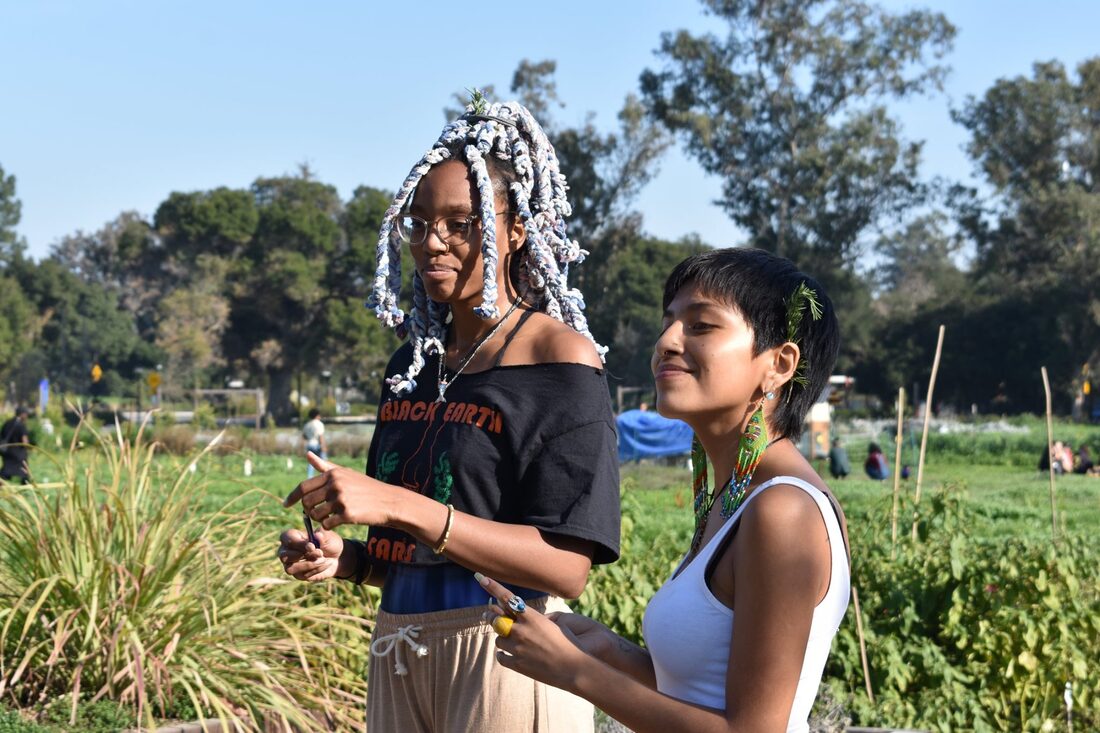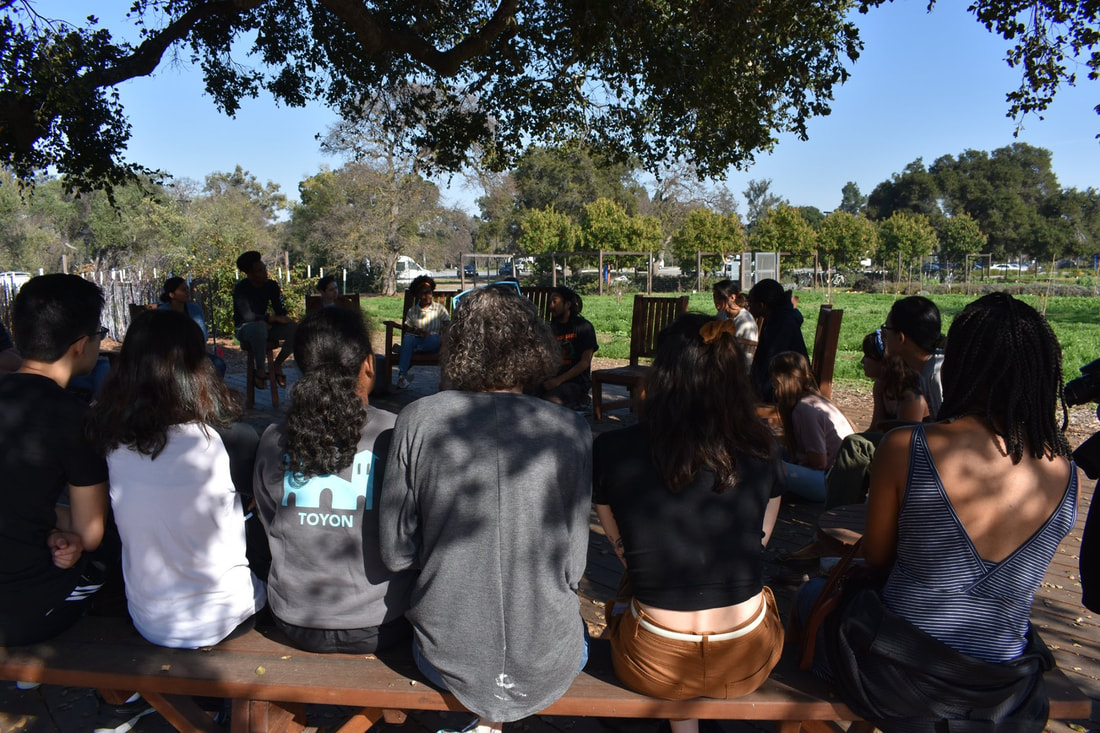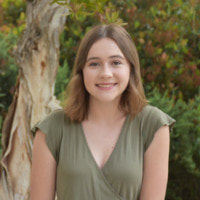Free the Land:a moment of personal reflection and community strengthening
As Stanford Roots grows and imagines the future of student engagement on the farm, we strive to center environmental justice, practice conscious consideration of the value of land and place, and include diverse perspectives on agriculture. As part of this, we co-sponsored the event “Free the Land: Resisting Settler Colonialism with Food Sovereignty,” which brought the local non-profit Black Earth Farms, a Black and Indigenous farming collective, to talk about agroecology, environmental justice, and land rights. The event included a land acknowledgment, teach-in, and several hands-on workshops (including an awesome yoga workshop).
To me personally, this event was an important step in realizing the goals of Roots and opening up more conversations about environmental justice and agroecology. As a club, we often have discussions about these issues, but I still struggle with finding our place at the farm and amongst the Stanford community broadly. I know we have work to do to be more inclusive, actively engage diversity, and acknowledge our shortcomings, and this event helped illuminate some of the ways we can work to better address environmental justice issues. I was so excited to see the enthusiasm around bringing Black Earth Farms, but I was also made increasingly aware of the fact that many of the organizers are not otherwise involved with work at the farm, and that the students in our club represent a niche identity within the environmental space on campus. “Free the Land” inspired meaningful reflection and honest discussion that I felt was incredibly valuable to me personally and to the ongoing envisioning of our club. I saw so many familiar faces that I didn’t expect to see at the event, as well as so many new people. Seeing the classroom fill up and overflow with students who were interested in what Black Earth Farms had to say was incredibly encouraging. I’m always happy just to see people getting out to the farm, but this assured me that the Stanford community wants to see more events like this. I learned a great amount from the event, but more importantly, I got to reflect and reconsider my perspectives and privileges. This event will definitely guide our work going forward at the farm. The opening discussion with Black Earth Farms started by defining some important terms, such as settler colonialism and agroecology, so that everyone could participate in an informed discussion. Afterward, I joined a breakout group about BIPOC agroecological practices, where we had a very interesting discussion on reclaiming a relationship with the outdoors and reconciling that with families or communities that have negative histories or associations with the natural environment. Patrick Archie, the director of the farm, has often said that agriculture represents the very best and the very worst of human relationships, and this workshop addressed some of those relationships, diving into an area of reflection and healing that I hope to explore more as a club.
I also joined a writing workshop where we responded to prompts about the concepts of freedom and nourishment. It was incredible to hear what my peers wrote about these prompts and how deeply emotional and personal this topic is. The event as a whole was so full of life and enthusiasm on such a beautiful day, and it was incredibly personally motivating. Still, it is just the beginning of what needs to happen to make the farm work for students and inspire more holistic engagement with the farm. I’m excited to see future environmental justice events taking place at the farm (I’m especially excited for Earthtones in the spring!), and I hope to have more reflection both on agriculture and its deep history with environmental justice, as well as the value of land and land rights. The farm itself provides a unique opportunity to take physical space and connect to the outdoors, and I hope to continue to hold events there while also acknowledging that the farm is more than a venue for events, but rather a place with inherent value. I am so thankful for everyone who gave time and emotional energy to plan this event, and in particular for Black Earth Farms and the incredible work they are doing. |
Lindsay Filgas
is a sophomore studying Earth Systems. She is currently the president of Stanford Roots, a club at the Stanford Farm that focuses on engaging with the farm in diverse ways and emphasizing reflection on place, community, and stewardship. Lindsay is excited about studying agroecology, science communication, and community organizing for environmental change. |



